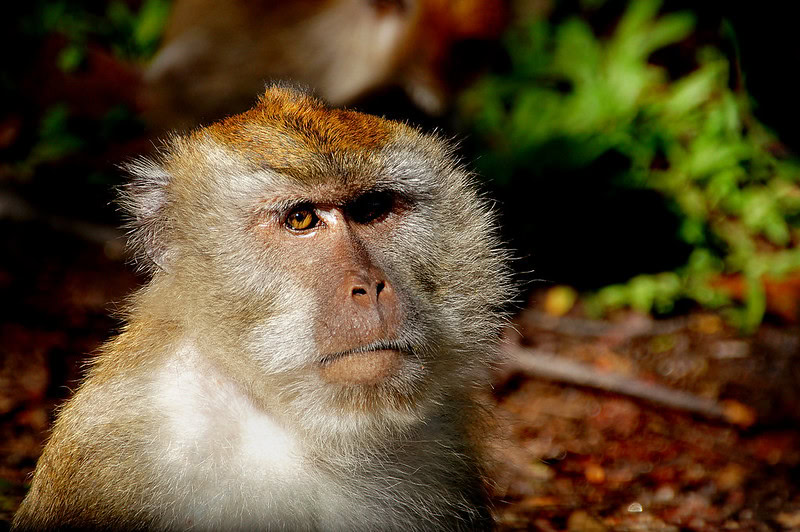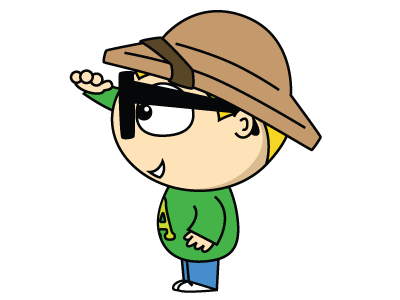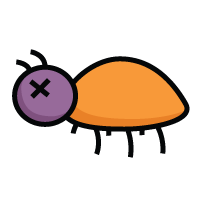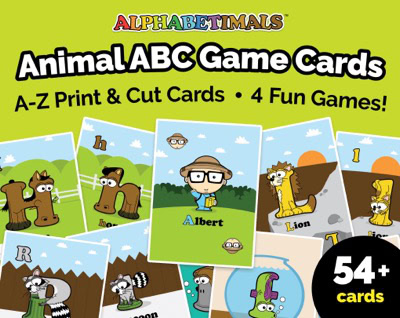
Monkey
Monkeys are playful animals found in forests worldwide. They swing from trees, eat fruit, and are known for their cleverness and curiosity. Check out these cool and wacky facts about monkeys and get ready to go ape! Join Albert as he explores these amazing monkey facts for toddlers, preschoolers and kindergartners. Click on the images to hear silly sounds and then read about fun monkey facts like what do monkeys look like?, what sound do monkeys make?, how big are monkeys?, what do monkeys eat?, where do monkeys live?, and more fun facts and printable monkey coloring pages!

What do monkeys look like?




Monkeys are mammals which means that they are warm-blooded, have fur and drink their mother’s milk.
They look a little bit like us but with tails.
Humans are apes not monkeys, but apes and monkeys look similar.
There are many different types of monkeys. They have 4 limbs – 2 legs and 2 arms. They have hands and feet like us and can pick up things in their hands. They are covered in fur and usually have long tails.

What sound do monkeys make?


Click the the image to hear the sound!
Monkeys make lots of different sounds. Depending on the species or type of monkey, they can howl, chatter, hiss, squeal, bark and roar.

How big are monkeys?


The biggest monkey in the world is the mandrill. Rafiki in The Lion King is a mandrill. They can grow up to almost 3 feet (1 meter) long.
The smallest monkey in the world is the Pygmy Marmoset. This monkey is 4-6 inches (11-15 centimeters) long, which is smaller than a guinea pig.

What do monkeys eat?




Most monkeys are omnivores. That means that they eat both meat and vegetation.
Some monkeys eat mostly fruit, seeds, sap and nectar whilst some eat insects or hunt larger prey such as rats, birds and even antelope and other monkeys.

Where do monkeys live?

Most monkeys live in tropical rainforest or jungle environments, but they can also be found in a wide range of other habitats. They can be found in forests, grasslands, savannah and mountains.
Some monkeys spend most of their time in trees while others prefer the ground.
More fun facts about monkeys for kids
- Monkeys can be split up into two main types: Old World monkeys and New World monkeys. Old World monkeys have more narrow noses, thumbs made for grabbing things, and pads on their butts for sitting! New World monkeys have wider noses, long tails that can act like an extra arm, and only live in South and Central America.
- Common types of Old World monkeys:
- Baboons
- Colobus monkeys
- Langurs
- Macaques
- Mandrills
- Proboscis monkeys
- Common types of New World monkeys:
- Capuchin monkeys
- Squirrel monkeys
- Marmosets
- Spider monkeys
- Tamarins
- Woolly monkeys
- Some monkeys called howler monkeys can howl. Their howl is more like a lion’s roar rather than a wolf’s howl. It’s very loud and can be heard up to 3 miles (8 kilometers) away.
- Proboscis monkeys look funny. They have a very big nose. But that’s not all that makes them unique, they have partially webbed feet like ducks. This helps them swim really well. They need to be able to outswim crocodiles when crossing rivers. Their stomach also has a few different chambers, like a cow. This helps them break down the plants that they eat. Think how much you could eat if you had more than one stomach chamber!
- Japanese macaques are monkeys that can live in very cold places. They can’t go out and buy gloves, scarves and hats to keep warm in the snowy weather, so instead they take hot baths. They find natural, hot springs and lie in the warm water.
- Some monkeys have such long, thin arms, legs and tails that they look like big spiders swinging through the trees. They are called spider monkeys and can hang upside-down by their tails while they pick and eat fruit from the trees.
- Gray langur monkeys eat lots of fruit and leaves. Sometimes the leaves have a chemical which can make the monkeys sick. So, they will find medicine gum from a nearby tree to make them better.
- Monkeys are very intelligent animals. They are great at communicating with each other and are often very sociable. Some strengthen bonds with each other by grooming. This means they brush eat other’s fur, picking out ticks and other parasites.
Free monkey coloring pages
Want to color our Monkey Alphabetimal?
Sources: Wikipedia, Live Science, Creative Commons, Britannica.com and Freesound.org

Alphabetical list of animals that start with M
A full alphabetical list of popular animal names that begin with the letter M for toddlers and preschool kids.
- Macaque
- Macaw
- Magpie
- Mallard
- Manatee
- Mandrill
- Manta Ray
- Margay
- Marmoset
- Marmot
- Mayfly
- Meerkat
- Millipede
- Mink
- Mockingbird
- Monarch Butterfly
- Mole
- Mollusk
- Mongoose
- Monitor Lizard
- Monkey
- Moose
- Moray Eel
- Mosquito
- Moth
- Mountain Lion
- Mouse
- Mule
- Musk Ox
Which one should be the next Alphabetimal? Let us know on our facebook page.
All animals A-Z
Animal phonics alphabet
Animals that start with common phonics digraphs
Animal facts for kids
Other animal collections
Try our Printable Alphabet Worksheets! Download a FREE SAMPLE or preview all 200+ on Etsy.com or TeachersPayTeachers.com


